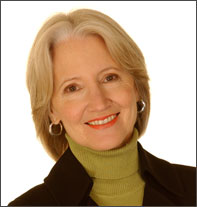Steve Steinberg: Urban Shocker: Silent Hero of Baseball’s Golden Age
April 15, 2018 by David
Filed under Non-Fiction, WritersCast
 Urban Shocker: Silent Hero of Baseball’s Golden Age – Steve Steinberg – University of Nebraska Press – Hardcover – 9780803295995 – 352 pages – $32.95 – ebook versions available at lower prices – April 1, 2017
Urban Shocker: Silent Hero of Baseball’s Golden Age – Steve Steinberg – University of Nebraska Press – Hardcover – 9780803295995 – 352 pages – $32.95 – ebook versions available at lower prices – April 1, 2017
Even avid baseball fans may be forgiven for not knowing much about Urban Shocker, one of the best pitchers of major league baseball’s early modern era. It is no surprise that Shocker is not as famous as he could and should be. Shocker’s best years were spent in St. Louis, playing for the perennially mediocre Browns. And his time as a Yankee teammate of Babe Ruth was tragically cut short by ill health. Furthermore, he was a star player at a time when baseball was much more of a local sport – no television to memorialize his achievements – his face and skill as a pitcher is virtually invisible to us, now almost 100 years since his glory years.
Steve Steinberg is a talented baseball historian and writer. His work in uncovering the story of this undeservedly ignored pitcher is admirable. Baseball history can be a rich vein to mine, but it requires talented and dedicated individuals to do the incredibly time consuming work of research, and then to transform those details into a compelling narrative arc. Steinberg succeeds in both respects, and with this fine book, he brings Urban Shocker to life for contemporary readers.
Even if you are not a diehard baseball fan, Shocker’s life reveals a great deal about baseball and its players as part of the culture and daily life of America in the immediate post World War I (Roaring Twenties) era. Baseball players lived much more difficult lives than their modern descendants, it seems. And of course, the business of baseball was very different then – players were tied to their teams for life, and had very little control over their own destinies. While they were paid well compared to the average worker of the day, in relative terms, their paychecks were not usually life changing and most players had to work other jobs during the off seasons.
Little is known of Shocker’s early life, and he did not make it to the big leagues until he was in his early twenties. Like many players of the day, his path to success was not an easy one. And once he reached the majors, playing for the Yankees before their great success years, he was quickly traded away to the St. Louis Browns in 1918. It was not until 1925, after four straight seasons with at least twenty wins for the lowly Browns that Urban was finally traded back to the Yankees. He finally had the opportunity to play in the World Series with the 1926 Yankees.
In the almost mythological 1927 season, often considered to be among best in baseball history, Shocker pitched brilliantly to compile 18 wins against only 6 losses, this at a time when his skills were clearly in decline. Shocker was suffering from a then incurable heart disease that would kill him less than a year later. He kept his illness to himself, and managed to excel as a pitcher using his years of experience to substitute for physical dominance before he finally had to quit the game altogether, surprising the baseball world at the time.
Steinberg has given us a deftly written, detailed and sensitive portrait of a complicated man, whose brilliant baseball career was cut all too short. I enjoyed reading this compelling biography immensely – it brought me back to a period of baseball history I have long been interested in – and I had a great time speaking with author Steinberg about this book and his work in baseball history.
Steve Steinberg is known as a baseball historian of the early 20th century. He was fortunate to have sold a family business, allowing him to explore a new career as a baseball writer. He focuses his work on portraying long-forgotten players, bringing them to the attention of contemporary baseball fans and readers. He is the author or co-author of several books and many articles, including with Lyle Spatz, 1921: The Yankees, the Giants, and the Battle for Baseball Supremacy in New York. Steve’s web site is a wealth of baseball history. He lives in Seattle with his wife, Colleen.
Podcast: Play in new window | Download
Claire Messud: The Burning Girl (A Novel)
March 4, 2018 by David
Filed under Fiction, WritersCast
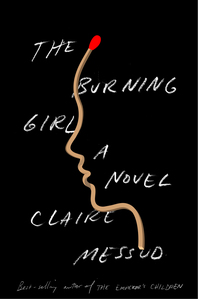 The Burning Girl – Claire Messud – W.W. Norton – Hardcover – 9780393635027 – 256 pages – $25.95 – ebook versions available at lower prices – August 20, 2017 (paperback forthcoming June 5, 2018)
The Burning Girl – Claire Messud – W.W. Norton – Hardcover – 9780393635027 – 256 pages – $25.95 – ebook versions available at lower prices – August 20, 2017 (paperback forthcoming June 5, 2018)
The Burning Girl is an extraordinary novel. Messud, whose work and reputation I knew of, but had never read before discovering this, her newest book, is an exceptional novelist. Her writing is luminous and almost magical; she is able to inhabit characters and tell stories from within them in an assured and sympathetic voice. This is a beautiful, sometimes disturbing, and very powerful work, a book that has stayed with me since reading it.
The story is about two young girls, Julia, and her best childhood friend Cassie. The book is initially about their friendship and their adventures together, and the way the closeness of two girl friends can be so important to the very young. But then it turns to the changes that occur as the two girls get older and find themselves taking different directions in their young lives. Julia is a golden girl and Cassie is not. Cassie’s life is a struggle simply to be who she is in an impossible circumstance, where Julia’s feels centered – as much as any adolescent life can actually be centered in the modern world.
But this is not just an interior novel of psychology and being. Messud tells a good story with grace and sureness. Julia and Cassie ultimately do come back together in a dramatic way, and what happens to the girls is complicated and emotionally draining both for the characters and for the reader.
Writing from and about children creates complications and challenges for any writer. In my opinion, Messud has met that challenge, and has given us a vivid portrait of the tragedies that lurk beneath the surface of modern digitally enabled culture. Her story makes us wonder about what is going on in the families all around us, the complicated circumstances and emotional challenges that face so many today, a world of hidden pain and sorrow for far too many.
Claire Messud really impressed me with this book. And while it was a painful book to read at times, the emotional and intellectual reward was worth the journey. It was a pleasure for me to have the opportunity to talk with her about writing and the story she told in The Burning Girl.
Claire studied at Yale and Cambridge and has taught literature and writing at a number of colleges and universities and is on the editorial board of The Common, a literary magazine at Amherst College. She is a recipient of Guggenheim and Radcliffe Fellowships and the Strauss Living Award from the American Academy of Arts and Letters. The Burning Girl is her seventh novel; The Emperor’s Children was a New York Times best seller. She lives in Cambridge, Massachusetts, with her family.
Visit Claire Messud’s website here to find out more about her work. And there is a good interview with Claire in the Guardian from 2013 that is worth a read as well.
I am still surprised that I had not read this author’s work before – and am now a dedicated Messud reader, looking forward to reading the rest of her earlier novels, and looking forward to her next. I think you will enjoy our conversation about this book.
Podcast: Play in new window | Download
David Wilk interviews Russell Banks about Lillabulero magazine
February 4, 2018 by David
Filed under Publishing History, PublishingTalks
 Publishing Talks began as a series of conversations with book industry professionals and others involved in media and technology, mostly talking about the future of publishing, books, and culture. As every media business continues to experience disruption and change, I’ve been talking with some of the people involved in our industry about how publishing might evolve as it is affected by technology and the larger context of culture and economics.
Publishing Talks began as a series of conversations with book industry professionals and others involved in media and technology, mostly talking about the future of publishing, books, and culture. As every media business continues to experience disruption and change, I’ve been talking with some of the people involved in our industry about how publishing might evolve as it is affected by technology and the larger context of culture and economics.
Over the past few years, the series has expanded to include conversations on many other literary and publishing topics. I’ve talked with editors and publishers who have been innovators and leaders in independent publishing in the past and into the present, and will continue to explore the ebb and flow of writing, books, and publishing in all its forms and formats, to help document the breadth and depth of modern literary publishing.
Listeners will most likely know of Russell Banks for his powerfully written and evocative fiction. His novels include The Darling, The Sweet Hereafter, Cloudsplitter, Rule of the Bone, Affliction, Continental Drift, Searching for Survivors, Trailerpark, among others, as well as a collection of short stories, A Permanent Member of the Family.
The prolific Banks has written poems, stories, and essays that have appeared in The Boston Globe Magazine, Vanity Fair, The New York Times Book Review, Esquire, Harper’s and other magazines and journals. His most recent book is the memoir entitled Voyager.
Banks has been widely honored, having won the Ingram Merrill Award, the John Dos Passos Award, the Literature Award from the American Academy of Arts and Letters. Continental Drift and Cloudsplitter were Pulitzer Prize finalists; Affliction, Cloudsplitter and Lost Memory of Skin were PEN/Faulkner Finalists. He is also the founder and president of Cities of Refuge North America.
I think Russell Banks is among the best writers we have. I’ve been moved and challenged by his writing for a very long time. But the main reason I wanted to talk to Russell for this Publishing Talks series is that he was the co-editor of the important literary magazine and press, Lillabulero. With poet Bill Matthews, Russell started publishing Lillabulero when they were students at UNC in Chapel Hill in 1966. That magazine was an important part of the sixties generation of literary magazines and presses, and along with its many peers and competitors helped build a new literary culture that we are still experiencing today.
In those days, mimeographs and a new generation of small offset printing presses, along with inexpensive postal rates, enabled a low cost of entry for writers and editors to reach a wide audience all over the country and to create a new community of readers that were equally hungry for new work as much as the writers themselves sought audiences. Russell and Bill were at the center of much of the creative energy that was circulating around the country at that time, and Lillabulero quickly earned a reputation for quality writing from new writers.
Bill Matthews passed away far too young, and is missed by all those who knew him and his work; I hope this conversation will help bring him wider attention. And it was a great pleasure and honor for me to have this opportunity to speak with Russell about this period in his illustrious literary career.
Bill Matthews’ son, Sebastian, interviewed Russell for the Fiction Writers Review a few years ago, and that interview is a valuable source as well, and the Paris Review interview with Banks is flat out terrific.

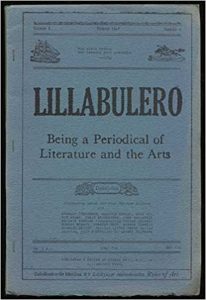
Podcast: Play in new window | Download
Phillip Lopate: A Mother’s Tale
January 15, 2018 by David
Filed under Non-Fiction, WritersCast
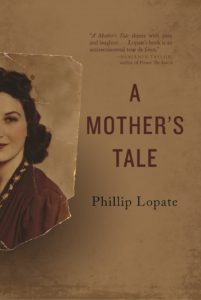 A Mother’s Tale – Phillip Lopate – Mad River Books (Ohio State University Press) – Hardcover – 9780814213315 – 196 pages – $24.95 – ebook versions available at slightly lower prices – January 12, 2017
A Mother’s Tale – Phillip Lopate – Mad River Books (Ohio State University Press) – Hardcover – 9780814213315 – 196 pages – $24.95 – ebook versions available at slightly lower prices – January 12, 2017
It might be said that a good memoir is a hard thing to find. It takes a special touch from a writer. The best memoirs have humor and self awareness – one must be selective in choosing what is important to share and what must be omitted, valuable to one’s self but not so much for the reader.
Philip Lopate is a skilled and experienced writer who inherently understands the necessities of writing about self and family. His mother was a complicated person, his family life unusual and full of strange twists and turns that made him and his brother who they are as adults.
In 1984, Lopate convinced his mother, Frances, to allow him to interview her and record the story of her life. Frances was a powerful and strong willed figure. She was orphaned in childhood, married young, and had to make a life for herself without a support system, as a mother. She worked in a number of fields and late in life became an actress and singer. She appeared in television commercials and performed in plays in New York.
She told Philip all her many criticisms of her husband (his father), recounted the details of her affairs and sexual encounters, told him about her experiences with therapy and continuously complained about how the world had mistreated and misunderstood her. Locate set the tapes aside and never listened to them until thirty years later, when his mother had passed away. At that point Lopate was drawn back to the recordings, perhaps wanting to better understand his mother and himself through her confessions.
A Mother’s Tale is essentially then a three-way conversation between Lopate today, his mother, and the younger self he hears talking to her on the tapes.
Lopate seeks to better understand and appreciate his mother and the husband she ostensibly despised, but could never leave. He cannot share her self-pity or the harping on blame assessed to everyone but herself. But through it all, he comes to see her anew, now as a grown man, recognizing more clearly the survivor, her powerful appetite for love and for life, and the ways he finally found to express his love for her.
It’s a brave thing to expose oneself and one’s family in such a personal piece of writing. Lopate has succeeded with this short memoir, giving us much to savor, appreciate, and ponder about ourselves and our own family histories. This is a terrific book.
“With his signature insight an candor, Lopate reveals his mother for the complicated and troubled character she was, and himself–her darling, her confessor, her victim, her judge–as the child behind the writer he was to become. I could not put it down.” — Lynn Freed
Philip Lopate is the author of a number of well respected memoirs and personal essays, as well as two novellas, and is also the editor of several important anthologies. He has won a variety of awards for his writing, as well as for his work as a teacher. He is currently a professor at Columbia University’s School of the Arts, where he teaches nonfiction writing.
Philip Lopate is a wonderful conversationalist and an easy person to interview. It was a tremendous pleasure for me to speak with him about this book and his intriguing mother.
Author website here. Author photo by Sally Gall.
Podcast: Play in new window | Download
Bill Schubart: Lila and Theron (A Novel)
December 13, 2017 by David
Filed under Fiction, WritersCast
 Lila and Theron (A Novel) – Bill Schubart – Charles Michael Publishing – Hardcover — 9781682613566 – 192 pages- $19.95 – ebook versions available at lower prices – June 6, 2017
Lila and Theron (A Novel) – Bill Schubart – Charles Michael Publishing – Hardcover — 9781682613566 – 192 pages- $19.95 – ebook versions available at lower prices – June 6, 2017
This small book is short and sweet in a very good way. Through well written fiction, the book documents and celebrates an imagined place and people in time, that have only recently disappeared from the American landscape. It’s difficult for most of us moderns to imagine life without all the technological conveniences we have come to take for granted today. It was not that many years ago that the isolated mountain communities of northern Vermont were still home to small farmers, whose daily lives were closer in rhythm to the nineteenth century than to even the twentieth, much less the technologically advanced twenty first century of today. Some of these hardy folk still farmed with horses into the 1960s, and many small-scale daily and truck farming operations managed by dint of endless toil, to support the families on the land they had worked for generations.
To most of us, these lives will be as foreign as science fiction. Harsh circumstances often make people harsh, but Schubart’s characters find a way to access their humanity despite all the struggles of life which which they must cope. It’s a joy to get to know these characters and to share the stories of their lives. Schubart, now in his seventies, bridges this time frame. He grew up in northern Vermont, and while his life experience was vastly different from the farm people he writes about here, these are people he knew and loved during the his youth, and it benefits us all that he has brought them to life in this lovely novel.
Thelma dies at nineteen giving birth to a son, Theron. When the son first meets his father, he learns his mother’s death is his fault and can only muster the question, “How did she die?”
Looking away, the father mutters, “She died givin’ birth ta you. An’ I lost all her help and comforts.”
“I have long considered Bill Schubart to be the wisest columnist in America. That same wisdom, deep life experience, and empathy come shining through on every page of his new novel, Lila and Theron. Full of joy, sadness, humor, and insight, Lila and Theron is a clear-eyed celebration of our almost boundless capacity, despite all our human frailties, to love both one another and the place we call home. Over the years, I have known many true and good country people like Lila and Theron, whom I have been proud and honored to call my friends. This is a beautiful book.” – Howard Frank Mosher, author of Marie Blythe and Walking to Gatlinburg.
Bill Schubart has lived with his family in Vermont since 1947. He writes about Vermont in fiction, humor and opinion pieces, is the author of several books, is a regular commentator on Vermont Public Radio, and active in Vermont community and political life. Learn more about him and his work at his website.
It was a true pleasure for me to share a conversation about Vermont and its people, small-scale farming, and the art of fiction with my old friend, Bill Schubart.
Podcast: Play in new window | Download
Christopher Benfey: Red Brick, Black Mountain, White Clay
November 26, 2017 by David
Filed under Non-Fiction, WritersCast
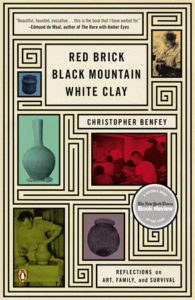 Red Brick, Black Mountain, White Clay: Reflections on Art, Family, and Survival – Christopher Benfey – Penguin – paperback – 9780143122852 – 304 pages – $16.00 – ebook versions available at lower prices – February 26, 2013
Red Brick, Black Mountain, White Clay: Reflections on Art, Family, and Survival – Christopher Benfey – Penguin – paperback – 9780143122852 – 304 pages – $16.00 – ebook versions available at lower prices – February 26, 2013
I found this lovely and compelling book by complete happenstance while visiting North Carolina earlier this year. The redoubtable Regulator Bookshop in Durham had a copy out on its “local interest” shelf, and the cover grabbed my attention immediately.
Not knowing anything about author Benfey, I was surprised and pleased to learn about his background through this complex and rewarding memoir. It’s a book that combines so many different areas of his interest – and mine – built around a complex interweaving of his family’s story and his desire to learn about and understand the people in his life story.
Benfey was raised in Richmond, Indiana, where his father was a chemistry professor at Earlham College. His father’s side of the family were German Jews who escaped Hitler, including aunt and uncle Josef and Anni Albers, who were both central figures at Black Mountain College, in North Carolina (and central also to modern arts and crafts in 20th century America). North Carolina is a nexus, as Benfey’s mother grew up in the longstanding folk pottery region of the state as well.
So Benfey’s story starts as a family history, but moves assuredly through art, geography, cultural history and his own personal journey of discovery as a writer and thinker; as the title itself suggests, “names the three paths, each mapping the experience of relatives or ancestors of mine trying — by art, by travel, or by sheer survival — to find a foothold in the American South.”
There are many well-told stories here, and North Carolina is at the core of it all. Even if you have never explored the cultural and geographical riches of that state, this book will capture your imagination and bring you there. Benfey builds his story much as a brick layer does, carefully assembling the pattern from materials at hand to create a fully formed story all the while.
This is a book I am happy to recommend to almost any reader.
Chris Benfey is a professor at My. Holyoke College, where he is Andrew W. Mellon Professor of English. He was educated at the Putney School, Earlham College, Guilford College, and Harvard (Ph.D. in Comparative Literature). Benfey is also a journalist, having served as the art critic for Slate, and also is a contributor to The New York Review of Books, The New York Times Book Review, and The New Republic, among many others. Chris is a renowned Emily Dickinson scholar, and author of four highly regarded books about the American Gilded Age. His edition of essays on the Iliad by Simone Weil and Rachel Bespaloff appeared as War and the Iliad in 2005.
Benfey’s poems have appeared in The New Yorker, the Paris Review, and Ploughshares.
This book is among my favorites and I hope you enjoy the conversation I had with the interesting and well-spoken Christopher Benfey as much as I did.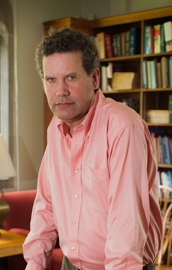
Podcast: Play in new window | Download
Thomas McNamee: The Inner Life of Cats
November 12, 2017 by David
Filed under Non-Fiction, WritersCast
 The Inner Life of Cats: The Science and Secrets of Our Mysterious Feline Companions – Thomas McNamee – Hachette Books – Hardcover – 9780316262873 – 288 pages – $27.00 – ebook versions available at lower prices – March 28, 2017
The Inner Life of Cats: The Science and Secrets of Our Mysterious Feline Companions – Thomas McNamee – Hachette Books – Hardcover – 9780316262873 – 288 pages – $27.00 – ebook versions available at lower prices – March 28, 2017
What a fun read! Thomas McNamee’s story begins with the story of finding his own cat, Augusta, and that story becomes the framework for a comprehensive understanding of how cats develop both physiologically and psychologically, and of course how their owners do as well.
McNamee recounts the evolution of cats and much more as he tells the story of his own cat’s adventures. He talks to all kinds of experts, animals behaviorists, activists and researchers to help his readers understand these strange and different animals who have lived with and among humans for so long. His book is well grounded in every way.
The author has strong opinions about these animals. He is clearly someone who loves cats and wants to improve the way other cat lovers live with and treat their pets. He aims for them to have happier and better relationships with them, and I suspect that reading this book will in fact help make that happen for them.
While I am decidedly not a cat person, Tom McNamee is such a fine writer and storyteller, I found this book impossible to put down. I am guessing true cat loving humans will as well.
McNamee is the author of several successful books, including The Grizzly Bear; Nature First: Keeping Our Wild Places and Wild Creatures Wild; a novel, A Story of Deep Delight; The Return of the Wolf to Yellowstone; Alice Waters and Chez Panisse: The Romantic, Impractical, Often Eccentric, Ultimately Brilliant Making of a Food Revolution; The Man Who Changed the Way We Eat: Craig Claiborne and the American Food Renaissance; and most recently, The Killing of the Wolf Number Ten.
McNamee also wrote the PBS documentary Alexander Calder, which won a Peabody Award and an Emmy. In 2016, he was awarded a Guggenheim Fellowship to work on The Inner Life of Cats.
He was a board member and chairman of the Greater Yellowstone Coalition. He has also served as a board member of Rare Conservation and the Center for Urban Education about Sustainable Agriculture. After two decades in New York City, he then lived on a cattle ranch in Montana for eight years. He now lives and writes in San Francisco.
Thomas McNamee’s website is here.
“The Inner Life of Cats is filled with shining prose, moments of sheer cat joy–and intimate, careful scientific observation. Thomas McNamee’s naturalist’s eye, combined with his humor and heart, bring the always wild, yet domesticated cat into delightful, insightful focus.”
―Cat Warren, New York Times bestselling author of What the Dog Knows
Talking with Tom about this book was a true pleasure. Full disclosure: I published his excellent book, The Killing of Wolf Number Ten (a great book – it is the story of the return of wolves to Yellowstone National Park).
Podcast: Play in new window | Download
Jonathan Lerner: Swords in the Hands of Children
October 30, 2017 by David
Filed under Non-Fiction, WritersCast
 Swords in the Hands of Children: Reflections of an American Revolutionary – Jonathan Lerner – OR Books – Hardcover – 9781944869472 – $22 – 224 pages – December 5, 2017. Ebook versions available at a lower price. Order direct from the publisher, OR Books.
Swords in the Hands of Children: Reflections of an American Revolutionary – Jonathan Lerner – OR Books – Hardcover – 9781944869472 – $22 – 224 pages – December 5, 2017. Ebook versions available at a lower price. Order direct from the publisher, OR Books.
As Writerscast listeners doubtless know, I am interested in books about the sixties, a period in our history that shaped so much of what is now our current worldview and world situation, for better and for worse. This was a period in American history marked by social and political conflict, sparked principally by the Vietnam War. For many young people, it was the time in their lives when political and social idealism flourished, yet for some, directions taken and decisions made, acts committed, that would later appear misguided and wrong.
In the early sixties, Jonathan Lerner was a student at Antioch College, who almost accidentally became a full-time staff member of Students for a Democratic Society, the most powerful organization of the New Left (among its founders, the recently deceased Tom Hayden). In this book, Jonathan recounts the story of his life during the most fraught years of the political upheavals of this era.
Jonathan Lerner was at the center of many of the most important political events of that time. He became a founding member of the Weatherman faction of SDS, which ended up taking over the organization in 1969, and was the editor of its newspaper Fire! and an “above ground” representative of the Weather Underground organization, that was responsible for much of the far left spawned violence of the era.
The Weather Underground ultimately carried out a campaign of bombings across America. Some of its members died, many stayed underground for years, and some went to jail. Lerner tells some compelling stories about this time in particular and the people he worked and lived with. Overall, he seems to have been almost an accidental radical, who like many in the sixties, “went with the flow” of events and people around him, trying to find his place in a complicated environment.
Jonathan tells his story with brutal honesty, questioning much of what he once took for granted, as an insecure gay man existing in an environment that was not supportive in any way. This memoir has much to offer to those of us still seeking to understand the politics and culture of our youth, as well as for those too young to have experienced the sixties directly.
Lerner is the author of the novels Caught in a Still Place and Alex Underground, and is today a journalist focusing on architectural, urbanist and environmental issues. He lives in the Hudson Valley of New York state with his husband.
We had a great conversation in our wide ranging conversation. Visit Jonathan’s website here.
“Imagine if your favorite uncle, a brutally honest, worldly, self-reflective gay raconteur, had been, as a twenty year-old, a lieutenant in an underground guerrilla army dedicated to the violent overthrow of the government of the United States. Jonathan Lerner is that favorite uncle you never had, telling unbelievable true stories―no bullshit―from the ‘revolution’ fifty years ago. This is the closest you’ll ever get to being there.” ―Mark Rudd, national secretary of SDS, founding member of the Weather Underground and author of Underground: My Life with SDS and the Weathermen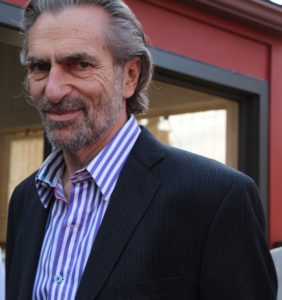
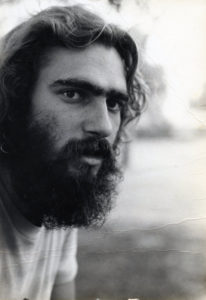
Podcast: Play in new window | Download
Elizabeth Farnsworth: A Train through Time – A Life, Real and Imagined
October 15, 2017 by David
Filed under Fiction, WritersCast
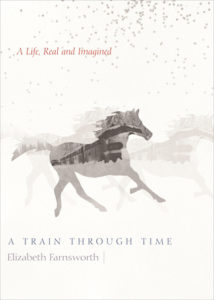 A Train through Time: A Life, Real and Imagined – Elizabeth Farnsworth – Counterpoint – Hardcover – $25.00 – 160 pages – February 14, 2017 – ebook versions available at lower prices
A Train through Time: A Life, Real and Imagined – Elizabeth Farnsworth – Counterpoint – Hardcover – $25.00 – 160 pages – February 14, 2017 – ebook versions available at lower prices
“I began this book with a sense of discovery and finished it in a state of exaltation. Along the way it broke my heart. It has been a long time since I read a book so moving, plain spoken and beautiful. The instant I finished it, I went back to the beginning and started in again.” ―Michael Chabon
This slim – and gorgeously produced – memoir is one of the most striking and memorable books I have read recently. I have to simply echo what Chabon said about it – Elizabeth Farnsworth has written something very special, a book that does not fit easily into our conception of book categories – and that is a good thing. Her book is an exploration of childhood memories of loss and of family life that woven together with more recent stories of her work as a journalist and documentary film maker, are built into a fictional structure. The book forms an almost dream state to carry the author (and the reader) through her story.
Farnsworth interrogates her own understanding of events, real and imagined, to understand the arc of her life. It is a truly magical journey of self and psyche.
A Train through Time is illustrated with the remarkable photo art of Mark Serr, whose works contribute to the ethos and sensibility of the book, as well as providing us with a beautiful and dreamy cover image.
Of course it helps that Farnsworth is a fine writer and a terrific storyteller. I was deeply moved by this book, and really enjoyed having the opportunity to speak with the Ms. Farnsworth about her story, about trains, journeys, and life in general. As an experienced television personality, she is very comfortable in recorded conversation and we had a great talk together, which I hope you will enjoy.
Elizabeth Farnsworth is a filmmaker and a foreign correspondent. For many years, she was the chief correspondent on the PBS NewsHour hosted by Jim Lehrer. During her career, she traveled widely to report on stories in Cambodia, Vietnam, Chile, Haiti, Iraq, and Iran and many other places. Farnsworth grew up in Topeka, Kansas, has a B.A. from Middlebury College, an M.A. in history from Stanford University and now lives in Berkeley, California.
Her documentaries include The Judge and the General (2008) and The Gospel and Guatemala (1983).
You can learn more about the author and A Train Through Time at the Counterpoint website here.
Podcast: Play in new window | Download
Nancy MacLean: Democracy in Chains: The Deep History of the Radical Right’s Stealth Plan for America
September 26, 2017 by David
Filed under Non-Fiction, WritersCast
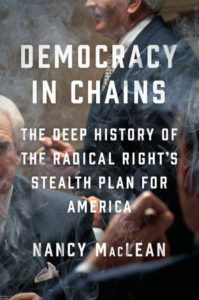 Democracy in Chains: The Deep History of the Radical Right’s Stealth Plan for America – Nancy MacLean – Viking – Hardcover – 9781101980965 – $28.00 – 368 pages – June 13, 2017
Democracy in Chains: The Deep History of the Radical Right’s Stealth Plan for America – Nancy MacLean – Viking – Hardcover – 9781101980965 – $28.00 – 368 pages – June 13, 2017
I will say this clearly and forthrightly: whatever your political opinions or positions, you must read this book. It shines an important light on the history of what has now become the most potent force in modern American politics. This book reveals in detail how the Koch brothers and other shadowy billionaires’ political philosophy has been weaponized in an ongoing war against democratic beliefs and institutions.
Professor MacLean came across this historical record more or less by accident, while she was researching the Nobel Prize-winning political economist, James McGill Buchanan, the principal architect of the ideas and institutions the Koch brothers and their allies have harnessed to radically alter the American political landscape in their distorted image of “economic libertarianism.” This philosophy fully recognizes that anti-democratic efforts are necessary to secure the wealth of the few against the “predations” of the democratic majority, and all their work for the last forty years or more has been aimed toward controlling and weakening democratic institutions. They have been remarkably successful in their efforts.
There is so much to learn in this book, yet still so much more for us to uncover, and ultimately then, so much that needs to be done by those who feel the need to defend democratic liberalism and American institutions. It is remarkable to learn that this effort is essentially part of a longstanding effort to reach far back into our history to undo FDR’s democratic reforms, as well as those of JFK, LBJ, and the civil rights movement. And that Charles Koch is so ironically a follower of the principles of that old Bolshevik, V.I. Lenin.
We learn here that Koch and his cronies have built a secret cadre of true believers who want to do what their hero Buchanan did in Pinochet’s Chile, which was to use the institutions of government to control and contain democracy. They have come a long way toward succeeding in our own country, as most citizens are completely unaware of what they are doing, especially with their takeover of the judiciary. And in Trump’s America, they are free to have their way with us.
One way you can tell Nancy MacLean has made an impact with her research is the level and sheer ferocity of mostly personal attacks from the right against her. Those who post in opposition seem to have neither read the book, nor care to think about the author’s actual work. One of the tools used by the Koch-financed opponents of democracy is the personal attack and what they call the “increased transaction cost” for anyone who opposes their views. Since they usually cannot win intellectual or even political arguments, they prefer to disparage and attack those who dare stand against them on other grounds than reason.
I urge listeners to read this book, think about what MacLean has uncovered, and then, if you agree with what she says, use what you learn from this book to stand up for freedom and democracy against oligarchy.
“This sixty-year campaign to make libertarianism mainstream and eventually take the government itself is at the heart of Democracy in Chains. . . . [MacLean] takes the time to meticulously trace how we got here. . . . If you’re worried about what all this means for America’s future, you should be. . . . And if someone you know isn’t convinced, you have just the book to hand them.”
—NPR
“It’s the missing chapter: a key to understanding the politics of the past half century. To read Nancy MacLean’s new book, Democracy in Chains: The Deep History of the Radical Right’s Stealth Plan for America, is to see what was previously invisible.”
—George Monbiot, The Guardian
“[A] riveting, unsettling account of ‘Tennessee country boy’ James McGill Buchanan, key architect of today’s radical right.”
—O, The Oprah Magazine
Nancy MacLean is also the author of Behind the Mask of Chivalry (a New York Times “noteworthy” book of the year) and Freedom is Not Enough. She is currently the William Chafe Professor of History and Public Policy at Duke University, and lives in Durham, North Carolina.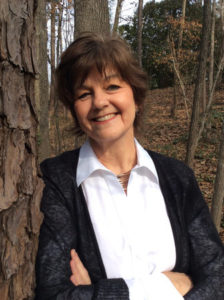
Podcast: Play in new window | Download

